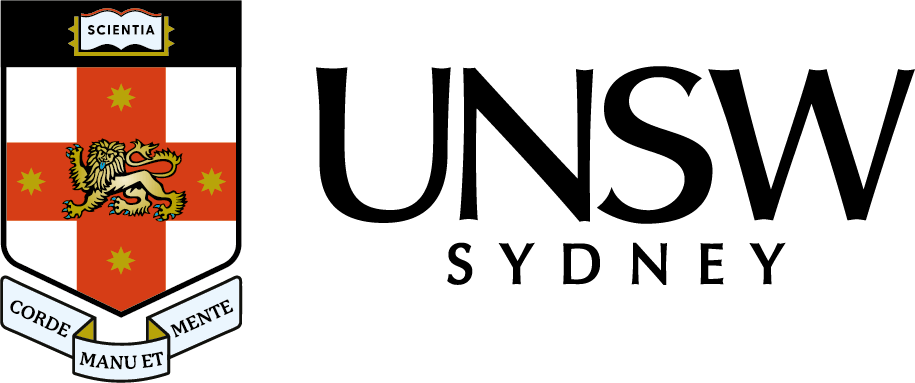COVID-19 and the Future of Choral Singing in Australia
UNSW and Gondwana Choirs partner together next Wednesday evening, May 20 at 6.30pm in a free webinar discussing the future of choral singing in Australia. Speakers include leading UNSW Epidemiologist Professor Raina MacIntyre and UNSW Aerospace Engineer Professor Con Doolan, alongside choral experts Lyn Williams AM, Elizabeth Scott and Associate Professor Carl Crossin OAM.
View here: https://youtu.be/LZss6EbVzTo
About The Speakers
Professor Con Doolan
Professor Con Doolan is based in the School of Mechanical and Manufacturing Engineering. He has research interests and expertise in the following areas:
- Aeroacoustics and flow induced noise: understanding and controlling noise generated by fluid flow (aircraft, wind turbines, submarines, fans, ventilation ducts, automobiles, trains, valves, etc)
- Fluid mechanics: understanding the physics of fluid flow and applying this knowledge to practical problems in industry
- Acoustics and noise control: general acoustics, acoustic beamforming, time reversal
- Wind tunnel testing: aerodynamic measurement, flow measurements and visulalisation, anechoic/aeroacoustic testing
- Aerospace engineering
Professor Raina MacIntyre
Professor Raina MacIntyre (MBBS Hons 1, FRACP, FAFPHM, M App Epid, PhD) is NHMRC Principal Research Fellow and Professor of Global Biosecurity. She heads the Biosecurity Program at the Kirby Institute, which conducts research in epidemiology, vaccinology, bioterrorism prevention, mathematical modelling, genetic epidemiology, public health and clinical trials in infectious diseases. Her research falls under 4 areas:
Personal protective equipment, Vaccinology, Epidemic response and emerging infectious diseases, and Bioterrorism prevention. She is a dual-specialist physician with training in epidemiology and modelling. Her research is underpinned by her medical training, vaccine program experience and extensive field outbreak investigation experience. She is a graduate of the Australian Field Epidemiology Training program, the MAE at ANU, and has extensive experience in shoe-leather epidemiology of infectious diseases outbreaks. Her in-depth understanding of the science of outbreak investigation draws from this experience combined with her academic training through a Masters and PhD in Epidemiology. She is best known for research in the detailed understanding of the transmission dynamics and prevention of infectious diseases, particularly respiratory pathogens such as influenza, tuberculosis, bioterrorism agents and vaccine-preventable infections. She has led the largest body of research internationally on face masks and respirators in health care workers. Her research has been influential in informing guidelines for health workers on PPE. She has extensive expertise in vaccination programs, with a particular interest in adult vaccination with a focus on the elderly and vaccines for bioterrorism. Specific vaccination interests include influenza, pneumococcal disease, HPV, smallpox and herpes zoster. She has done a body of work on vaccine effectiveness of influenza vaccine against myocardial infarction. She led a NHMRC Centre for Research Excellence in immunisation for high risk populations, and is now head of UNSW-VIRL, a vaccine research centre focused on adult and high-risk group vaccination. Her face mask research has focused on health care workers and hospitals. Her lab conducts research on aerosol dynamics and movement of respiratory droplets. She has also done research on using risk-analysis methods for analysing emerging infectious diseases outbreaks such as MERS-CoV and is a leader in new approaches to biosecurity through cross-disciplinary response. She is involved in several research studies on COVID-19. She leads Biosecurity in Global Security PLuS and is interested in emerging threats to health security. She also designed and co-convenes a course, Bioterrorism and Health Intelligence, taken by students at UNSW and ASU. She has led a pandemic simulation (Exercise Mataika, 2018 and Pacific Eclipse, 2019) in Australia and the US, which underpinned by modelling research and covers issues such as surveillance, diagnosis, health system capacity, mass quarantine, maritime transport and infected cruise ships, travel bans and the foundations of epidemic control. An online version of this, Unknown Biothreat Simulation, can be done as a self-paced exercise.
She leads a NHMRC Centre for Research Excellence in Epidemic Response, ISER, the first in Australia to be dedicated to epidemic response. She has over 380 publications in peer-reviewed journals. Her passion for field epidemiology led her to co-found the ARM network for Australian outbreak response. She is currently on the Global Accreditation Board for TEPHINET, the network of global field epidemiology programs. She also has an interest in the ethics of medicine, and specifically in dual-use research of concern. and has been on the World Organisation for Animal Health (OIE) committee for developing Guidelines For Responsible Conduct in Veterinary Research Identifying, Assessing and Managing Dual Use Research. She has research collaborations across the PLuS Alliance, with researchers from Arizona State University and Kings College London, and has an adjunct appointments at The College of Public Affairs and Community Solutions and the College of Health Solutions at ASU. She is also an adjunct Professor at Shanghai Jiao Tong University. She started a new cross-disciplinary journal, published by UNSW, Global Biosecurity, launched in February 2019.
